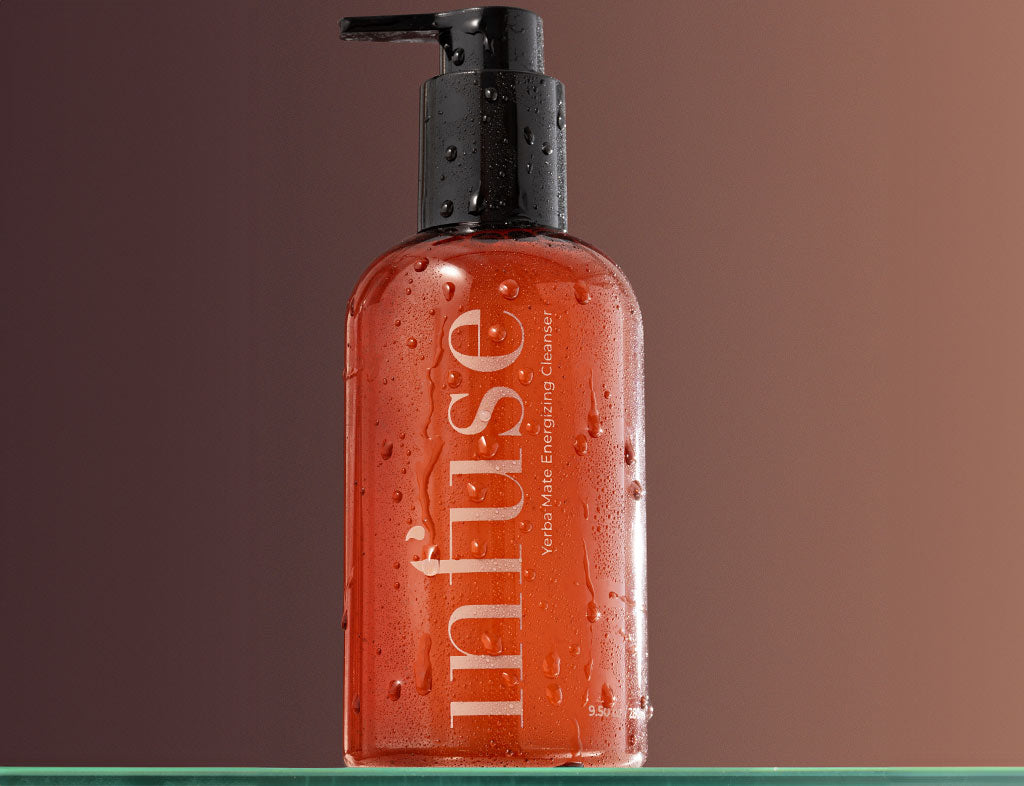Infuse Dives Into The Importance of Facial Cleanser: Why People Should Use One

Cleansing your face is the first essential step in any skincare routine, so choosing the right face cleanser is incredibly important. A cleanser will help you remove any unwanted dirt, debris, and dead skin cells collected during the day that could clog your pores and make your face feel gritty.
In addition, a good cleanser will help prime your skin for the next step in your skincare routine. If you don’t yet understand the importance of a facial cleanser, you will soon.
In our blog, our team of beauty skincare experts has explained the importance of facial cleanser products and why you should use one in your daily skincare routine.
Related product:
What Is a Facial Cleanser? The Essential Types
As you know, a face cleanser is a skincare product equipped with beneficial and safe ingredients that help remove dirt, dead skin cells, and other residue from the skin.
The facial cleaner you choose should do more than this. It should also help keep your skin healthy and glowing while preventing adverse reactions like rashes and acne breakouts.
In the quest to find the best face cleanser for your skin, you may discover that there is more than one type to choose from. To know which is right for your skin, you must know more about the different types.
Read more: Hispanic Heritage Month 2024: What You Need To Know
Below are the key differences between the different kinds of skincare products:
- Gel Cleansers: These cleansers have a gel-like consistency formulated to deep-clean and exfoliate your skin.
- Cream Cleansers: Cream cleansers generally have high moisturizing formulas and a thicker consistency.
- Foam cleansers: Foam cleansers are usually lightweight on the skin and foam up when dispensed.
Why Is Using a Facial Cleanser Important? The Benefits
So, why use a facial cleanser? There are a few benefits to using an effective quality facial cleanser. The primary benefit for most is improving your skin's health and overall appearance. Below is a list of the other benefits of daily cleansing:
- A face cleanser helps clear up your skin and removes any build-up, which will give you healthier skin.
- A cleanser will keep your skin looking soft and supple due to its hydrating properties.
- A cleanser will help stimulate blood circulation, improving oxygen delivery and giving your skin a glow.
- A cleanser helps skin look younger and reduces the side effects of aging.
- A cleanser will prepare your skin to absorb other skincare products.
Read more: Power of Yerba Mate: Transform Your Skincare Routine
How To Choose the Right Facial Cleanser
There are many options available, but not all facial cleanser options are good for your skin’s unique needs.
You should consider the following tips before selecting the best facial cleanser for healthy skin:
- Consult a dermatologist to help get the right recommended products that will suit your individual needs.
- You should know your skin type and choose a product that matches it. Some products can be too intense or too harsh for certain skin types.
- The type of facial cleaner matters, as some are easier for your skin to absorb than others. Choose among gel, foam, and cream cleansers.
- If you wear makeup frequently, ensure you choose a face cleanser designed to remove it.
- Look for a facial cleanser product that targets clogged pores if you sweat frequently.
- Ensure to use more natural facial cleansers if you have allergies.
Read more: Yerba Mate: The Best Eye Cream Skincare Ingredient for Mature Skin
The Wrap-up on Why Facial Cleansers Are Important
A cleanser is a great tool for priming your skin and clearing it of dirt before you apply other skincare products. With the right one, you can start your skincare routine off strong. We recommend always ensuring that the facial cleansing products you use are adapted to your skin's needs. We have a wide range of incredible facial cleansers you can choose from that will help rather than harm your skin.




